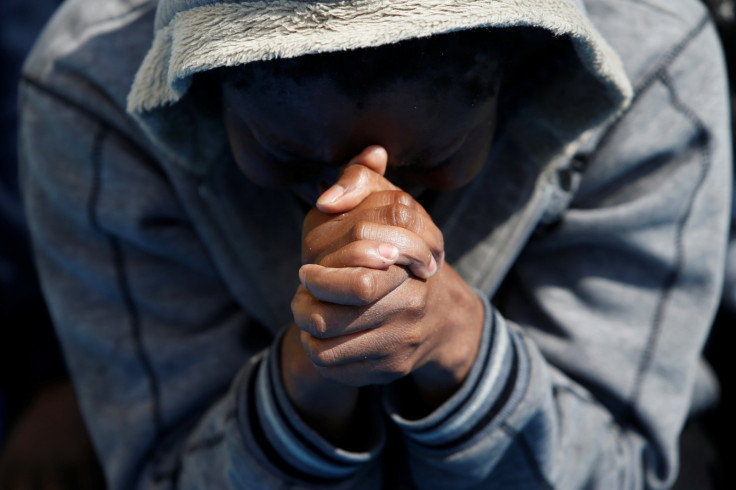'I survived Libya's slave markets' – one migrant's appalling testimony
Selling migrants from West Africa is becoming a trend among smugglers in Libya.

"We are mistreated like slaves, we are sold, we are hit." These are the words of a young Senegalese migrant, who claimed to have survived slave labour markets in Libya.
As a departure point for refugees trying to get to Europe, migrants arriving in Libya from sub-Saharan Africa are particularly vulnerable due to a lack of money and little in the way of documentation.
African migrants passing through Libya are traded in what the International Organization for Migration (IOM) described as "public slave markets" before being held for ransom, forced labour or sexual exploitation.
The 34-year-old Senegalese man from southern Casamance region, who we will call Mamadou to protect his identity, said he witnessed practices that reminded him of slavery when he was in southern Libya.
The man, who has extensive experience of working in the catering industry and speaks several languages, told the IOM he left Senegal in November 2016 and travelled through the Sahara in the hope of crossing the Mediterranean to rebuild his life in Europe.
After Niamey and Agadez, Mamadou arrived in the oasis city of Sabha, in the south of Libya. There, he was stripped of his money and taken prisoner by his smugglers and locked up in a Libyan's private house with hundreds of other West Africans, including children.
The smugglers asked their hostages to call their families to demand payment of a ransom. "You are beaten, you are mistreated, while you call on the phone, you are also hit so that your parents hear your cries," Mamadou said. "They beat us to send money."
During his stay, Mamadou described how migrants – many from Nigeria, Senegal and Gambia – were forced to work without pay for months on plantations.
"People make you work without paying you. We are mistreated like slaves, we are sold, we are hit. There are fields of oranges and tomatoes there, you are made to work without being paid, it is slavery," Mamadou said.
He was, however, treated better than many others of his fellow captives. Because of his knowledge of other languages, he served as an interpreter to the smugglers who eventually released him. Revolted by his experience in Libya and discouraged, Mamadou returned to Senegal on 10 April, with the help of the IOM.
© Copyright IBTimes 2025. All rights reserved.






















